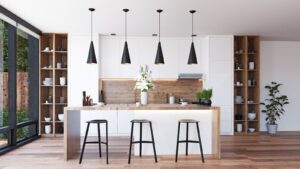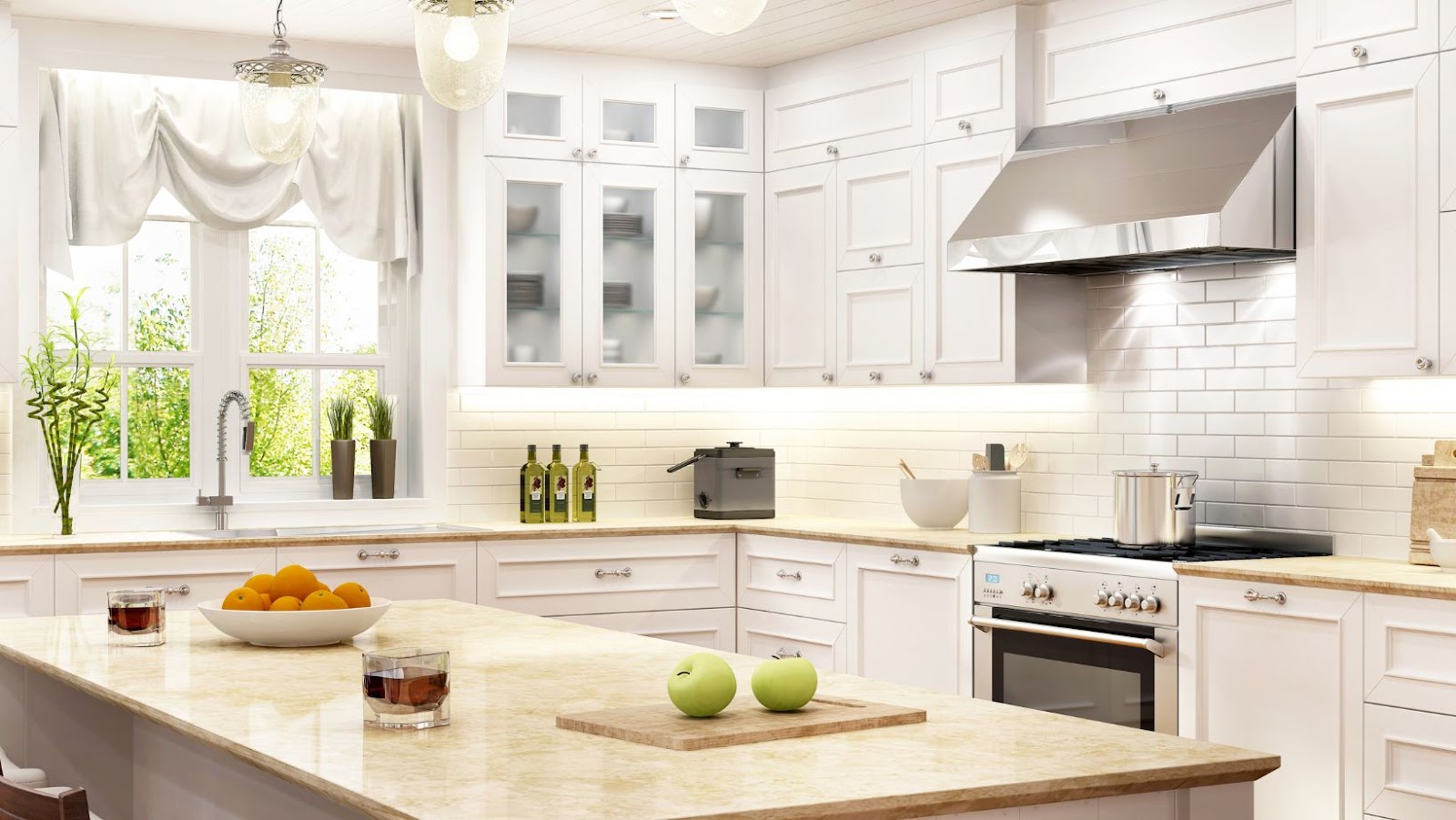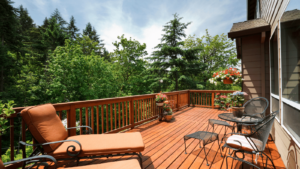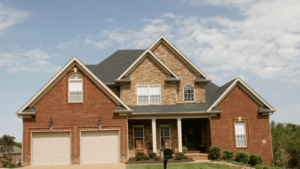The Advantages Of Brick Construction Over Other Types Of Construction

Is my House Solid Brick Construction
Brick construction has many advantages compared to other types of construction, such as wood-frame or concrete block. One major benefit of brick construction is how durable it is. This is especially true of solid brick construction, where the bricks are stacked and bonded together in a closely packed structure.
In this article, we will look into the major benefits of brick construction and why it is a superior choice for homeowners.
The Lifespan of a Brick Building
Brick buildings have a long lifespan, making them a popular choice for construction.
The durability of brick construction is due to several factors. Bricks are made from natural and durable materials such as clay and shale, which can withstand harsh weather conditions and erosion. Brick walls are thicker than those made of other materials and provide good insulation, thus reducing energy costs. Additionally, the low maintenance requirements of brick buildings mean that they do not need to be repaired or replaced often, which makes them a cost-effective option in the long term.
If you are unsure whether your house is a solid brick construction, look for clues such as the thickness of the walls, the sound they make when tapped, and whether there are bricks visible on the exterior of the building. However, even if your home is not entirely made of brick, it is likely to have some brick components that contribute to its durability and longevity.
Resistant to Wear and Tear
Bricks are a popular choice for construction due to their resistance to wear and tear, making them extremely durable and long-lasting. Unlike other construction materials such as wood, bricks are not prone to rot, decay, insect damage, or warping. Bricks can withstand harsh weather conditions, including heavy rain, strong winds, and extreme temperature changes, without deteriorating or losing their structural integrity.
In addition to their resilience, brick constructions also offer several other advantages, such as insulation, fire resistance, and soundproofing, making them ideal for homes and buildings. If you’re wondering whether your house is solid brick construction, look for signs such as uniform brick patterns on the exterior and interior walls, as well as brick chimneys and fireplaces.
Pro Tip: Regular maintenance, such as cleaning and repointing, can further extend the lifespan of your brick construction.
Ability to Withstand Natural Disasters
Brick construction is one of the most durable building materials available, and has the ability to withstand natural disasters such as earthquakes, hurricanes, and fires. Brick structures provide numerous advantages over other types of construction, and can last for centuries with proper maintenance and care.
The solid nature of brick construction makes it highly resistant to water damage, wind loads, and seismic activity. Brick materials are also non-combustible, allowing them to better resist fire damage compared to other types of construction materials. Furthermore, brick walls provide excellent sound insulation and energy efficiency, ensuring comfort and quiet for occupants.
Investing in brick construction can bring peace of mind to homeowners, knowing that their homes are safer and more durable against natural disasters than other constructions. Making sure your house is a solid brick construction is a wise long-term investment.
Brick Construction’s Energy Efficiency
Brick construction has been around for centuries and is one of the most popular building materials today. The benefits of this type of construction are numerous, including its energy efficiency.
Solid brick construction is known for its dense, thermal mass properties, which allow it to absorb and store the energy generated from the sun during hot summer days, and release it during cold winter nights.
This article will explore in more detail the energy efficiency of brick construction and how it compares to other construction materials.
Keeping Warm in Winter and Cool in Summer
Brick construction has a lot of advantages over other types of construction, including energy efficiency that can keep you warm during winter and cool during summer.
Brick homes offer excellent thermal performance, which means they can act as a natural insulator, keeping the heat inside during winter and outside during summer. This reduces your energy bills, saving you money and helping the environment.
Solid brick construction, in particular, is highly energy-efficient as it eliminates air spaces that allow air movement and heat exchange, which makes it even more effective in reducing energy consumption. Additionally, brick construction is durable and long-lasting, meaning it requires lesser repairs and replacements in its lifetime.
So, whether it is the warm nest during winters or the cool haven during summers, with brick construction, you’re well covered in either season while enjoying lower energy bills.
Minimizing Electricity Bills and Carbon Footprint
Solid brick construction is one of the most energy-efficient construction methods, resulting in lower electricity bills and a reduced carbon footprint.
Here are the advantages of solid brick construction over other types of construction:
Thermal Mass: Brick has high thermal mass, which means it can absorb and store heat. This results in a more stable and consistent indoor temperature, reducing the need for heating and cooling appliances and ultimately lowering your electricity bills.
Insulation: Brick construction provides natural insulation, keeping your home cooler in the summer and warmer in the winter without the need for additional insulation materials.
Sustainability: Bricks are made from natural and locally sourced materials, making solid brick construction a more sustainable option than other construction methods that require synthetic and non-local materials.
Durability: Brick construction is durable and long-lasting, leading to reduced maintenance and replacement costs over time.
Pro tip: If you’re unsure whether your house is solid brick construction, you can check by examining the external walls for individual bricks. If there are no visible features, it’s likely that your house is solid brick construction.
Aiding Ventilation and Airflow
Aiding ventilation and airflow is one of the many advantages of brick construction over other types of construction, especially if you have a solid brick house.
The thermal mass of bricks regulates the temperature inside the house according to the external environment. Bricks can absorb heat and store it during the day, releasing it into the house at night, and vice versa.
This means that brick-built houses can remain cool in summer and retain heat during winter, lowering energy bills and reducing carbon footprint.
Moreover, with adequate ventilation and airflow, brick-built houses can maintain a healthy and comfortable indoor environment. The natural breathability of bricks promotes air circulation and prevents the growth of mold, mildew, and other harmful pollutants that can cause allergies and respiratory problems.
So, if you’re considering constructing or buying a new house, a brick-built house might be a solid investment in the long run, ensuring both energy efficiency and health benefits.
Lowered Maintenance Needs with Brick Construction
Building a house is a significant investment and it’s important to choose the right type of construction for your home.
Brick construction is one of the most popular construction methods as it is known to be sturdy, reliable, and low-maintenance.
Let’s take a look at the advantages brick construction offers over other types of construction, so you can decide if it is suitable for your home.
No Need for Regular Painting or Staining
If your house is of solid brick construction, you’ll rejoice in the fact that there is no need for regular painting or staining.

Unlike wood or vinyl, brick doesn’t fade, peel, or require periodic maintenance. Once installed, the brick’s lovely color will remain intact for many years, and if you opt for a robust and high-quality type of brick, you won’t have to worry about repairs or replacements for a long time. Additionally, bricks are resistant to weather, insects, and fire, making them a safer and more durable option for your home.
By choosing brick for your home’s construction, you’re investing in a low-maintenance, long-lasting, and aesthetically pleasing material. There will be no need for updating or redoing anything again and again, giving you a strong sense of security and peace of mind.
Requires no Special Cleaning Chemicals or Equipment
One of the biggest advantages of brick construction over other types of construction is that it requires no special cleaning chemicals or equipment to maintain its durability and longevity.
Brick is a naturally durable and long-lasting material that can withstand harsh weather conditions and retain its structural integrity for decades without any major maintenance or repair work. Moreover, brick is a non-porous material that resists moisture and mold growth, which means it needs less frequent cleaning and upkeep.
Additionally, the solid brick construction of a home ensures better insulation, fire protection, and noise reduction compared to other construction methods. This translates to lower energy bills, increased safety, and a more comfortable living space.
Pro tip: Regularly inspect the brickwork of your home for any signs of damage or wear and tear. Quick repairs can extend the life of your brick home and save you money in the long run.
Resistant to Pest Infestation and Rotting
One of the major advantages of brick construction is that it is resistant to pest infestations and rotting, making it a low-maintenance option for homeowners.
Bricks are made of natural materials, such as clay and shale, which do not provide a hospitable environment for pests like termites and carpenter ants. Brick walls are also less susceptible to rotting caused by moisture, something that can affect wood-based construction.
Additionally, brick walls are durable and can last for decades without requiring significant maintenance. They can withstand extreme weather conditions, such as strong winds and heavy rains, and are fire-resistant, providing added safety for homeowners.
Brick construction may be more costly in the short term, but it can save you money in the long run by being a durable and low-maintenance option for your home.
Brick Construction’s Fire Resistance
Perhaps one of the most significant advantages of brick construction is its fire resistance. Brick walls can provide a high level of protection from fire, as compared to other types of construction such as wood or steel.
Brick construction materials are denser and also have a higher thermal mass, which allows them to absorb more heat over a longer period of time. This makes them an ideal choice for protecting your home from the dangers of a fire.
Noncombustible Materials
Brick construction offers unparalleled fire resistance, making it one of the safest and most secure building materials available for homes.
Here are the advantages of brick construction over other types of construction:
- Fire Resistance: Brick is a noncombustible material, which means it doesn’t ignite, burn, or release toxic fumes when exposed to fire. This makes it an excellent choice for homes located in fire-prone areas.
- Durability: Brick structures are known for their longevity, resistance to moisture and erosion, and ability to withstand extreme weather conditions. A solid brick construction can last up to 100 years without significant maintenance.
- Energy Efficiency: Brick has excellent insulation properties, which means it can keep your home cool in the summer and warm in the winter. As a result, homes built with bricks are more energy-efficient and cost less to maintain.
- Aesthetics: Brick’s natural look and feel can add a lot of character and charm to your home, improving its curb appeal and resale value.
Pro tip: To determine if your house is solid brick construction, look for uniformity in the brick pattern and mortar joints. If the bricks are spaced apart and filled with mortar, it is likely veneer brick construction.
Inability to Spread Fire
Due to their composition and density, bricks are naturally fire-resistant and provide an added layer of protection against fires in homes and other structures, making them a superior choice for construction.
Bricks have several advantages over other types of construction materials, including their ability to withstand high temperatures and flames without spreading the fire to other areas of the structure. Brick walls have a high level of thermal mass, which means they can absorb and store heat energy from a fire and release it slowly over time. This helps prevent the rapid spread of fire and protects the structural integrity of the building.

If you are unsure whether your house is constructed with solid brick or another material, look for clues such as brick patterns visible from the exterior of the building or an unfinished basement with exposed walls.
Minimal Fire Damage
Brick construction has an impressive track record of withstanding fires with comparatively minimal damage, making it a popular choice for those looking for a durable and fire-resistant building material. The natural properties of brick give it a significant advantage compared to other types of construction materials, such as wood or steel.
Here are some key advantages of brick construction from a fire resistance standpoint:
- Brick is non-combustible and doesn’t burn or give off toxic fumes if exposed to high temperatures.
- Brick walls are thicker than other forms of construction, which means they provide better insulation and are less prone to structural collapse.
- Bricks are highly durable and require minimal maintenance, making them a cost-effective material in the long run.
If you’re wondering if your house has solid brick construction, a simple way to check is to look for visible bricks along the exterior walls of your home. Pro Tip: Investing in brick construction can save homeowners time and money in the long run, not to mention give them greater peace of mind regarding their home’s fire resistance.
Brick Construction’s Sound Insulation
Brick construction is known for its sound insulation and is a popular choice for homes due to its ability to block out noise. The solid brick material creates a barrier that muffles sound, making it ideal for soundproofing homes and keeping them peaceful and quiet.
Let’s take a closer look at the sound insulation benefits of brick construction.
High Acoustic Insulation
Brick construction offers high acoustic insulation, making it a perfect choice for homeowners looking for a peaceful and quiet environment. The mass and density of brick walls make them superior at absorbing and blocking unwanted noise from both outside and inside the house.
Solid brick walls can provide up to 45-decibel sound reduction, which is higher than standard acoustic insulation materials used in other types of construction. Ultimately, this means less noise penetrating through the walls and significantly reducing noise pollution. Additionally, brick construction offers a variety of other benefits, such as fire-resistance, energy efficiency, and durability.
So, if you’re wondering “is my house solid brick construction?” and looking to upgrade for better sound insulation, then investing in solid brick construction is a fantastic choice for your home.
Reduction of Outside Disturbances
The advantages of brick construction over other types of construction are countless, but one of the most notable ones is sound insulation. Brick construction significantly reduces outside disturbances, providing a peaceful and quiet environment to the inhabitants.
The reasons why brick construction excels at sound insulation are:
- Thickness: Brick walls are thicker than other types of walls, which makes them less prone to sound transmission.
- Density: Bricks are made of dense materials, creating a barrier that absorbs sound vibrations.
- Airtightness: Brick walls are airtight, which means that they prevent the infiltration of noise from outside and the escape of noise from inside.
Therefore, if you’re wondering, “is my house solid brick construction?” and you confirm it, you can rest assured that you’re living in a quieter and more peaceful environment thanks to the sound insulation benefits of brick construction.
Enhancing Privacy and Peacefulness
Privacy and peacefulness are essential for a comfortable living space, and brick construction is an excellent choice to enhance both of these aspects. Compared to other types of construction, brick construction offers superior sound insulation and a quieter home environment.
Solid brick construction is particularly effective at reducing unwanted noise from outside your home. The thickness and density of brick walls can absorb and block sound waves, producing a more peaceful indoor environment. Brick construction also offers better temperature regulation, providing a more comfortable and energy-efficient home.
To determine if your home is solid brick construction, you can inspect the exterior walls. A solid brick wall typically measures at least one brick width thick and has no visible siding or stucco.
Whether you’re building a new home or renovating an existing one, consider brick construction for enhanced privacy, peacefulness, and overall comfort.
Pro tip: To further increase sound insulation, you can add insulation material between the brick walls, such as rock wool or fiberglass batts.






